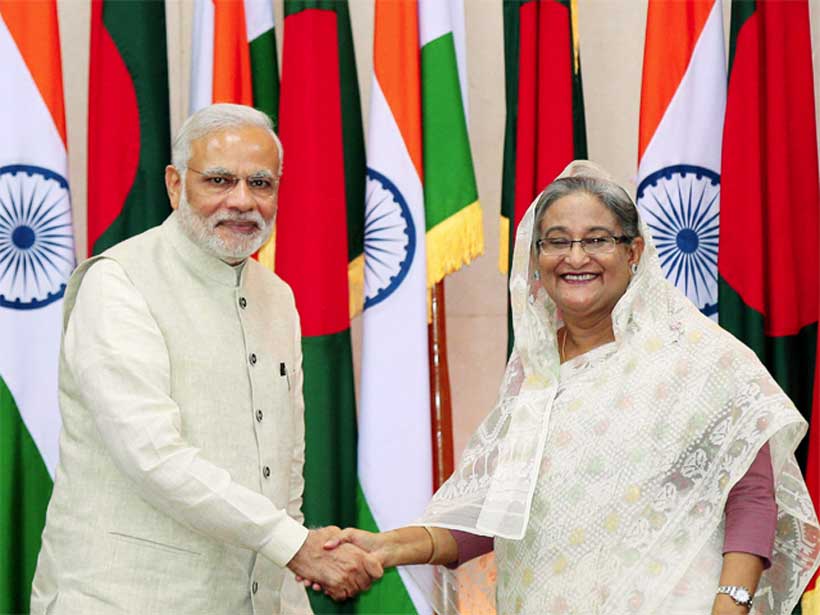
In his statement, Nazrul stressed that Modi's message, which referenced India’s support during the Liberation War, disregarded the sacrifices made by the Bangladeshi people and reduced the day’s importance to a mere tribute to India's role. He made it clear that Victory Day is a solemn occasion for Bangladesh, marking its hard-won independence and the brutal losses suffered during the war. The backlash from Nazrul highlights the delicate nature of historical narratives between India and Bangladesh, two countries with a complex relationship shaped by their shared history and differing national perspectives.
Modi’s social media post, which praised the Indian Armed Forces and highlighted India’s pivotal role in Bangladesh's liberation from Pakistan, has drawn criticism for seemingly downplaying the sacrifices made by the people of Bangladesh during the conflict. Modi also extended greetings to the people of Bangladesh, celebrating the bond between the two nations. However, this gesture, which was meant to foster goodwill, instead has fanned flames of discontent among many Bangladeshis who view such acknowledgments as insufficient in recognizing their own struggle for independence.
The conflict stems from a long-standing debate over the portrayal of the 1971 Liberation War. While India’s support in providing military aid to the Mukti Bahini and its role in defeating Pakistan’s military is undeniably a key aspect of the event, Bangladesh has long emphasized its own contributions to the war effort. Thousands of lives were lost, and the war left deep scars on the country’s national psyche. As a result, Victory Day is viewed not only as a celebration of independence but also as a day of remembrance for the millions who died or suffered atrocities during the war.
Modi’s comments have stirred political tensions in Bangladesh, with opposition figures and activists urging the government to formally respond. Although Nazrul’s protest was swift, it remains unclear whether the Bangladesh government will take further diplomatic steps in response to the controversy. Nazrul, who is a senior figure in the legal community, suggested that Modi’s message could lead to a distortion of historical facts and compromise the integrity of Bangladesh’s war of liberation narrative.
Bangladesh’s Prime Minister, Sheikh Hasina, has not yet publicly addressed the issue, but her government has consistently prioritized the preservation of Bangladesh’s historical memory. Hasina, who is the daughter of Bangladesh's founding father, Sheikh Mujibur Rahman, often emphasizes the importance of respecting the country's independence struggle. Relations between Bangladesh and India have generally been friendly in recent years, with both countries cooperating on regional security, trade, and energy matters. However, incidents like this illustrate the fragile nature of their ties, especially when sensitive historical issues come into play.
This diplomatic flare-up follows a series of political disagreements between the two countries, although the broader relationship remains largely cooperative. Bangladesh, which has emerged as a fast-growing economy in South Asia, is keen on maintaining positive relations with its larger neighbor. However, issues related to water sharing, border security, and historical grievances continue to cast a shadow on their interactions.
The response to Modi’s post also underscores the deep divisions in how history is viewed in both nations. While many Indians view the 1971 war primarily as a struggle for Bangladesh’s independence in which India played a decisive role, Bangladeshis emphasize the homegrown resistance movement led by the Mukti Bahini, along with the political leadership of Sheikh Mujibur Rahman, who is revered as the father of the nation. This differing perspective on the 1971 war is not just an academic debate but a deeply emotional issue that continues to shape national identities in both countries.
Asif Nazrul's protest, therefore, reflects not just a legal or diplomatic concern but a broader cultural and nationalistic sentiment in Bangladesh. His stance draws attention to how political figures and historical narratives can influence international relations, especially in regions with intertwined histories. This incident raises questions about the extent to which countries should be cautious in addressing such sensitive subjects, particularly in the age of social media, where words can easily incite larger debates or fuel nationalistic fervor.
